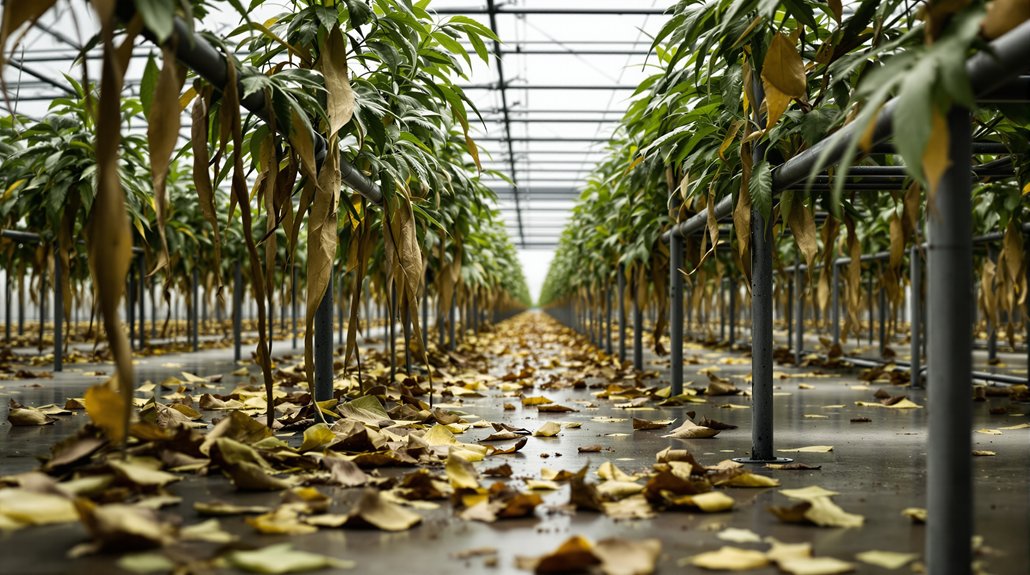A coalition of prohibitionist groups in Massachusetts has launched a ballot initiative targeting the state’s thriving $1.6 billion cannabis industry. The petition, misleadingly titled “An Act to Restore a Sensible Marijuana Policy,” seeks to dismantle commercial adult-use cannabis laws that have generated millions in tax revenue since 2016. The initiative threatens thousands of jobs and could force consumers back to illicit markets. Industry stakeholders are scrambling to mount a defense, but the real battle lies ahead.
While Massachusetts cannabis dispensaries continue generating record-breaking revenue, a coalition of prohibitionist groups has launched an ambitious campaign to dismantle the state’s entire recreational marijuana marketplace through a 2026 ballot initiative.
The Massachusetts Attorney General has certified two versions of a petition titled “An Act to Restore a Sensible Marijuana Policy,” which would effectively repeal the state’s commercial adult-use cannabis laws. Proponents must collect at least 74,574 registered voter signatures by December 3, 2025, to qualify for the ballot. If successful, the law would take effect January 1, 2028, creating a two-year runway for industry upheaval.
The proposed changes would gut Massachusetts’ thriving cannabis economy. The initiative targets General Laws Chapters 94G and 64N, eliminating the legal framework supporting licensed cultivation facilities and retail dispensaries. Adults 21 and older could still possess up to one ounce of cannabis or five grams of concentrates, but no legal retail outlets would exist to purchase these products. Home cultivation rights would disappear entirely, though gifting up to one ounce would remain legal.
This ballot push threatens substantial economic consequences. Massachusetts’ legal cannabis market generated $1.6 billion in retail sales over the past year alone. Since 2018, cumulative retail revenue has exceeded $8.3 billion, producing nearly $900 million in excise taxes and approximately $540 million in sales taxes for state coffers. The industry currently employs roughly 27,000 Massachusetts residents across cultivation, manufacturing, testing, and retail operations.
The timing appears strategically chosen amid ongoing regulatory turbulence. A recent audit highlighted mismanagement within the Cannabis Control Commission, which has overseen the regulated market since 2018. However, industry advocates argue these ballot initiatives represent a prohibitionist response to regulatory challenges rather than evidence of systematic failure. Similar to difficulties faced in fully legal countries, Massachusetts businesses continue to struggle with banking restrictions due to federal prohibition.
Public sentiment strongly favors maintaining legal cannabis access. Massachusetts voters approved legalization in 2016 with 54% support, and recent 2024 polling shows approval has grown to 65% among state residents. No state has previously reversed regulated adult-use cannabis laws once implemented, making Massachusetts a potential first. One version of the initiative would impose potency caps on medical cannabis flower at 30% THC and concentrates at 60% THC.
The ballot initiative landscape reflects broader political activism. September 2025 saw a record-breaking 47 initiative petitions filed, with 44 certified for possible 2026 ballot inclusion. The marijuana repeal joins high-profile measures addressing election reform and tax proposals, suggesting an unusually active ballot season ahead.
Industry groups and advocacy organizations are mobilizing opposition campaigns, recognizing the existential threat to their operations. The proponents, linked to organizations like Smart Approaches to Marijuana, face an uphill battle against established economic interests and apparent public support for legal cannabis. However, legal challenges may emerge before the election that could impact the viability of the cannabis repeal question.
Should the initiative succeed, Massachusetts would create an unusual legal paradox: adults could legally possess cannabis but have no legal means to acquire it beyond limited gifting arrangements. This regulatory void could potentially drive consumers back toward illicit markets that the legal framework was designed to replace.










